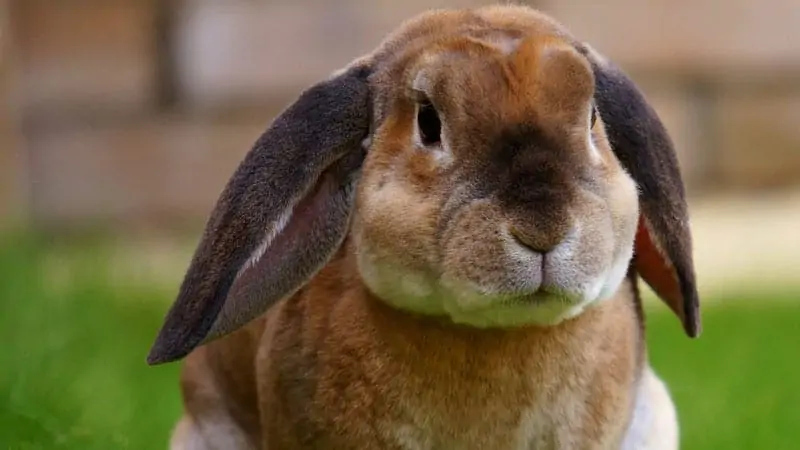Bunnies are cute, affectionate, and full of character. We love seeing them hop around, play with their mates, and eat from our hands. Yet there will be lots of times when we have to leave them home as we attend errands, school, work, and other human activities outside of home.
Though they thrive with human attention, bunnies are independent pets. You can easily leave them on their own for 8 hours and even up to two days without worrying too much about their welfare. If leaving for a week, you may have to hire a sitter to regularly check in.
Even though bunnies are independent, they still rely on their human family for affection and provisions. Leave them on their own for too long and you may come home to distressed bunnies. Read on for what to do and not to do when leaving bunnies on their own.
Is It OK For Rabbits to Be Alone?

It is safe and okay to leave bunnies on their own, but only for a limited time. To ensure your bunnies are comfortable and safe in your absence, do the following:
- Secure your bunny inside a spacious hatch where they can move around without feeling caged.
- Stock the hatch with a hay rack, water dispenser, and fresh uncut vegetables.
- Provide a litter box away from the hay so the bunny doesn’t leave its droppings in the hay.
- Leave the hatch in a large spacious room with natural light, but away from direct sunlight and wind. Also, keep the hatch away from AC vents.
Can I Leave My Bunny Alone For 8 Hours?
Bunnies can be left on their own during the day for six to ten hours daily while you’re at work or busy outside the home. Even though rabbits thrive with companionship, regular days alone won’t stress them. They will still enjoy their out of cage playtime once you arrive back home.
For the best experience, establish a routine for your bunny. Stick to around the same time for leaving the house and returning. Also, make the feeding schedule regular. That way, the rabbit lives in the safety and assurance of a time-based routine.
When you get back home each day, your rabbit may be excited by your presence. Take a few moments to say hi. Pet them or feed them a treat. Once you’re settled in the house, take some time to play with the bunny. Or simply release it from its hatch so it can hop around, explore, and exercise. A well-exercised bunny will tolerate your absence better and with less risk of stress.
How Long Can You Leave a Pet Rabbit Alone?
You can leave your pet rabbit on their own for up to 4 days. In some cases, and with proper planning, you can leave your pet rabbit on their own for about a week. However, for that time to be comfortable, you will need to:
- Provide unlimited clean hay, food pellets, and clean drinking water.
- Provide fresh green vegetables to last them a day or two. The hay should cover the rest of your time away.
- Have a way to clear out the rabbit’s litter and urine.
- Provide toys to keep the bunny happily engaged.
If you leave too much food or water, the rabbit could easily binge eat on the first few days, leaving them nothing to eat the rest of your time away. The bunny may also dirty their water.
If you can set up an automatic watering system, that would be best. The bunny gets an endless supply of clean drinking water on demand without any chance of making the remaining water dirty. The bunny drinks by applying some pressure to the watering valve. You will need to train the rabbit and they are usually quick to learn.
Don’t leave too much fresh vegetables as they will rot within the first couple of days. Provide unlimited hay instead. You will offer more fresh vegetables when you return.
Invest in a cage with a mesh bottom and a slanted floor under it. That way, the rabbit’s waste flows out of the cage area. Ensure the mesh is made of smooth material such as PVC rather than wire. This protects the rabbit’s feet and claws. Rabbits are very clean animals and will quickly learn to relieve themselves where the waste flows off. If possible, create an outflow system that goes outdoors or into your home’s sewerage system.
When planning a trip, start introducing your bunny to any new equipment early. Such equipment may include new feeders, waterers, and litter boxes.

Having your bunny in a room which receives plenty of natural light provides some normalcy. You may also have your lights on timers to avoid disrupting your rabbit’s normal sleep patterns.
You may also put your stereo or TV on a timer at low volume. This introduces some variety to the rabbit’s environment so they feel less lonely. You may also set up a remote monitoring system. Watching your bunny on your smartphone at any time can work to ease your fears and ensure they are safe and well fed.
If you will be away for longer than two days, consider hiring a sitter. This is someone who can come in a few minutes each day to make sure the rabbit hatch is fairly clean and there’s enough hay and water.
The sitter can also offer a small amount of fresh vegetables each day and replenish the pellets. The sitter could also swap out the toys every other day. A new toy keeps the rabbit engaged and excited. The toys need not be expensive. Some toy ideas you can readily find around the house include:
- A twig from a tree.
- An empty toilet roll.
- A cardboard box with holes.
- A pinecone.
- An old plastic shoe, for example old crocs your kids may have outgrown.
- A ball of tightly wound hay.
Don’t leave the pet rabbit in an outdoor hatch unless it’s very secure. Even if other animals can’t access inside the hatch, a rabbit can easily die of a heart attack if they spot a large bird, cat, dog, or other potential predator approaching the hatch.
Another reason not to leave the hatch outdoors is to protect the bunny from flies, mosquitoes, ticks, and fleas. Traffic noises, airplanes, and sounds of strange people can also leave the bunny in a state of perpetual shock.

